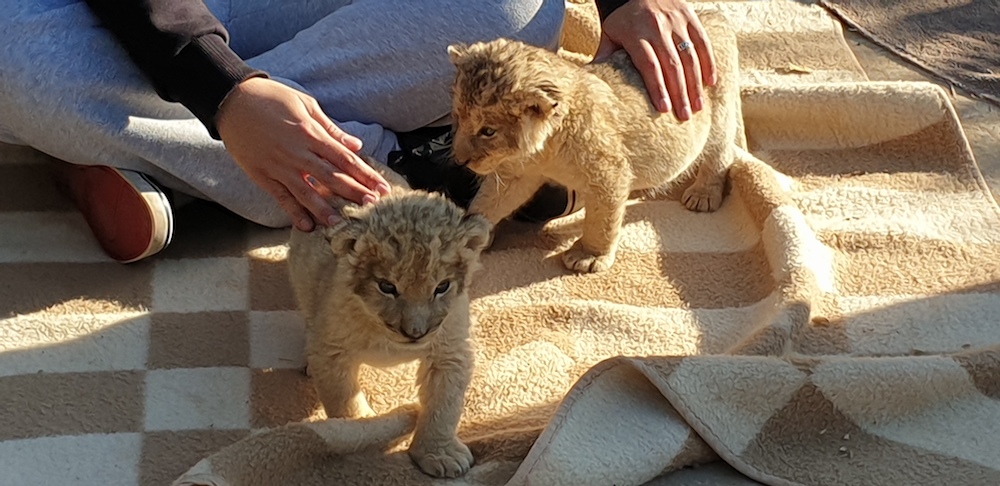11 Dec 2024

Tired Earth
By The Editorial Board

Today is World Lion Day – a day to celebrate one of Africa’s most iconic species and to raise awareness on conservation issues globally.
Lions are recognised worldwide for their importance not only from a nature conservation and ecological perspective, but also symbolically, culturally and in terms of tourism.
But the commodification of captive lions remains an enormous threat to the wellbeing and dignity of the species. Currently, as many as 10 000 lions and other big cats, including tigers and cheetahs, are bred and kept in captivity in approximately 350 facilities in South Africa, says Blood Lions. These predators are bred for commercial purposes, including cub petting, voluntourism, “canned” hunting, the lion bone trade and live exports.
In honour of World Lion Day, Blood Lions produced a video clip to highlight one stage in the exploitative cycle: that of cub petting. Tourists and volunteers are made to believe that their money will contribute to the conservation of wild lions and that the cubs they interact with will be returned to the wild, which is not true.
Despite the announcement in May 2021 by Minister Barbara Creecy of the Department of Forestry, Fisheries and the Environment (DFFE) that South Africa will no longer breed captive lions, keep lions in captivity, or use captive lions or their derivatives commercially, the captive lion industry is still thriving.
This legislative process is ongoing and in June 2021, a draft Policy Position paper was gazetted for public participation in the conservation and ecologically sustainable use of elephant, lion, leopard and rhinoceros. Last month, a Draft White Paper was released for public comment on the Conservation and Sustainable use of South Africa’s Biodiversity. Although both documents have the potential to make a positive impact on reversing the domestication and commercialisation of our wildlife, it will take significant time to amend and promulgate national legislation based on these documents.
‘In the meantime, the commercial captive lion breeding industry is allowed to continue. You can however be part of creating change,’ says Dr Louise de Waal, Campaign Manager at Blood Lions. ‘What would our children say if they knew the truth? YOU can stop supporting the exploitation of wild animals and help us to #CancelCaptivity.’
Here are some red flags to look out for when visiting a wildlife facility. If the following apply, Blood Lions recommends not supporting that facility:
You can also search the name of any captive wildlife facility in South Africa in this WildChoices resource to help you make informed choices.
Source : getaway.co.za
Comment